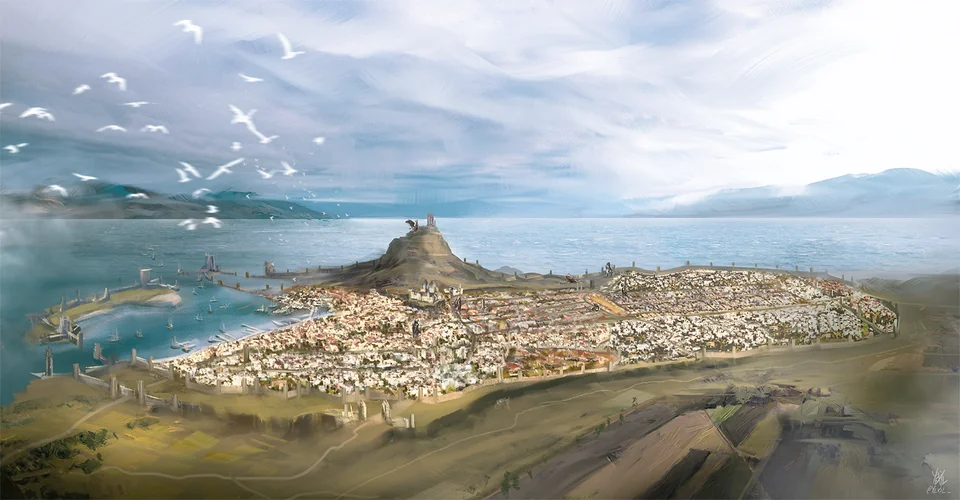Gur (gerr)
Related to the Rashemi, Gurs are stout, dusky-skinned, and dark-haired. They consider themselves "children of Selûne," and most of them revere the moon goddess. Gur communities live a nomadic existence wandering the Western Heartlands, leading others to refer to them as "the people of the highway."
Naming Traditions
Feminine names
Varra, Ulmarra, Imza, Navarra, Yuldra
Masculine names
Boriv, Gardar, Madevik, Vlad
Family names
Chergoba, Drazlad, Tazyara, Vargoba, Stayankina
Culture
Major language groups and dialects
Within their own tribes, the Gurs of the Heartlands speak Gurri, a patois or creole tongue with roots in the Imaskari languages, but with influence from many other tongues, many thought long-dead—in particular, Halardrim, an ancient dialect of the Rashemi language. The Gurs use the Thorass alphabet. They are also proficient in Chondathan, which they use when communicating with those outside their culture.
The Gurs of the Hordelands continue to speak a related dialect of the Imaskari language.
Culture and cultural heritage
By the 14th century DR, the Gurs were divided into two distinct cultures, those who traveled throughout the Western Heartlands and those living in the Endless Wastes. A few settled in some of the poorer sections of cities such as Baldur's Gate, Elturel, and Iriaebor.
The Gurs of the Western Heartlands are arranged by large extended families. A nomadic people, they travel from settlement to settlement in assorted caravans, picking up random jobs and selling or trading any unwanted goods. Some found work as soothsayers and diviners. Those few who settled in cities struggled to survive in their poorer quarters. Gur culture places a high value on honour, but they suffered long-standing prejudices from other folks.
The Gur of the Endless Wastes were on friendly terms with the Oigur and the Tuigan tribes.[6] Their lands bordered those of the Fankiang and Zamogedi tribes.[7

